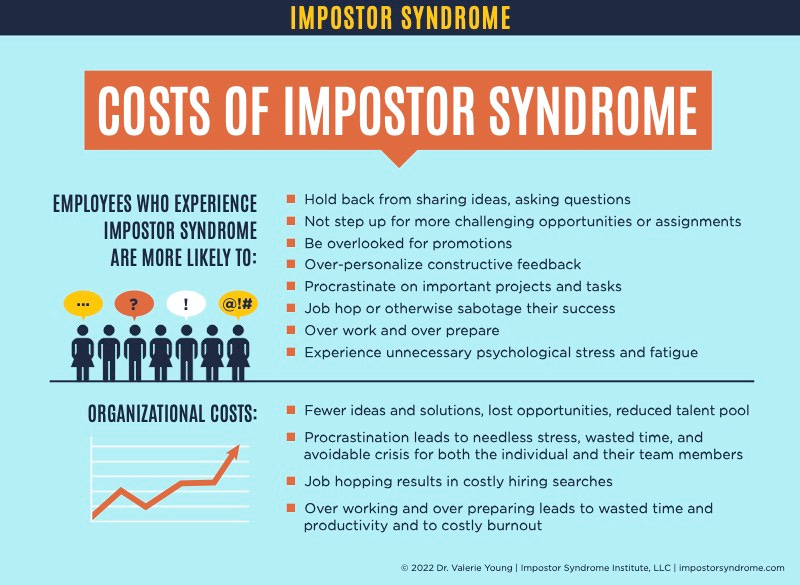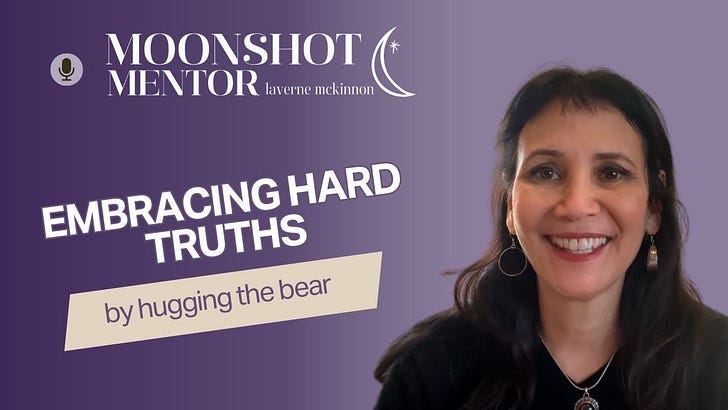I’ve always felt safe going it alone – maybe it’s because of early childhood experiences that taught me I should only rely on myself.
When I played alone or made breakfast on my own, I was rewarded by my mom with hugs for being independent. I could see the relief on her face when she would ask if I was okay, and I would say yes. She struggled a lot, as any mother with three kids would, especially because my older brother was in and out of the hospital. My dad worked all the time in construction as a heavy machine operator so he wasn’t around very much - it was important to make sure the bills got paid. (I have no idea whether they had health insurance at that point in their lives … )
I learned, or perhaps was self-taught, that if I needed help, it was a sign of failure. Being a burden to others - especially loved ones - was a cardinal sin. What became my most important want in life was to make other people’s lives easier - and it still is, which is why I’m a producer and a coach!
Over time the aversion to being a burden morphed and colluded with other aspects of my personality so that I became what Imposter Syndrome expert Dr. Valerie Young describes as being a “soloist.”
A soloist is someone who's all about doing things themselves to feel accomplished. They think only one person can get the job done right. Asking for help? That's like admitting defeat and being a failure.
In my first post about Imposter Syndrome, I talk about the distinction between achievement and accomplishment. Achievement is external validation of a job well done. Accomplishment is the internal validation of a job well done. Those who suffer from Imposter Syndrome are constantly seeking external validation and it never lasts long enough. It’s like when I eat cotton candy - so great in the moment, but the sugar high doesn’t last (and then I get a headache and feel sick to my stomach!)
I’ve taken great pride in going it alone and held fiercely onto the mistaken belief that I don’t need anyone else. I also took great pride in being what Dr. Young calls a “Superhuman.”
Superhumans, in relation to Imposter Syndrome, focus on how many roles they can juggle so there are more opportunities to excel.
In high school, I got called in to the principal’s office and was reprimanded for doing too many things. I was a cheerleader, on the student council, and performed in plays and musicals. It was so much fun! I had great grades and was baffled by why I was in trouble.
While I still don’t get why the administration was mad at me back then, I do now understand through Dr. Young’s work that wearing multiple hats is a way for me to prove how competent I am – and if I should fail wearing any single one of those hats or even make a mis-step then I’m a fraud, a loser, or not worthy.
I do have an unhealthy and unreasonable expectation that I should be able to do all the things I do with ease and grace. Not a hair out of place, with a smile on my face, looking and feeling rested and clear-headed. 🤪
Admittedly I’m both a workaholic and someone who has tremendous capacity. I love what I do, but I have to carefully look at what’s truly driving me in various situations. Work itself is not a bad thing, but if the motivation is purely about external validation and proving my self-worth then it’s a problem to my overall well-being.
In my own experience and when supporting clients, I’ve noticed the following effects caused from Imposter Syndrome:
😬 Burn-out
😬 Low Self-Esteem
😬 Lack of Self-Confidence
😬 Hypercritical of Self and Others
😬 Rigid Rule Keeping
😬 Black and White Thinking
😬 Catastrophizing
😬 Shame
Imposter Syndrome doesn't just affect individuals on a personal level. Dr. Young has created an impactful infographic illustrating the toll IS takes on employees and organizations.

Another impact I have witnessed in my work with clients who experience Imposter Syndrome is that their careers stall out because they are unable to receive constructive criticism. They struggle to differentiate between being told how to improve the work vs. believing that they are a failure. Any form of external criticism (perceived or real) can derail someone who is already hyper critical of themselves. In fairness, many managers and supervisors do not have skill in giving feedback.
When dealing with imposterism, it’s important to be able to self-assess by holding the following truths:
🤯 I am capable of doing this alone and I need help
🤯 I wear multiple hats and I may not wear them all well
🤯 I excel and I fail
Being able to hold opposing truths at the same time is the key to being able to move through Imposter Syndrome. More on this in the fourth installment of this series.
Bottom line: It’s not helpful to hold a black and white perspective that I’m either completely amazing or I’m a complete failure. It is helpful to recognize that not all feedback is helpful. By developing the muscle of discernment you can embrace constructive criticism and disregard the rest. And this applies to your own feedback loop.
To recap, we’ve highlighted three of the five forms of IS defined by Dr. Young:
Soloist
Superhuman
Next week, we’ll take a look at two remaining types: the Genius and the Expert.
Which ones, if any, do you identify with so far? How do you see them showing up in your personal and professional life?

I love to support ambitious, driven people who are feeling stuck and want to regain momentum so they can hit their next big goal. Want to explore working together?
If you’re resonating with what you’re reading, please consider subscribing. What’s that mean?
🙌🏾 You’ll receive regular emails (with lots of heart and a bit of humor) that share a tool or insight from my coaching practice.
🙌🏾 Typically the blog and podcast will have a question at the end to provoke thought that supports you in your growth.
🙌🏾 Updates on offerings, free stuff, recommendations, referrals.














Share this post